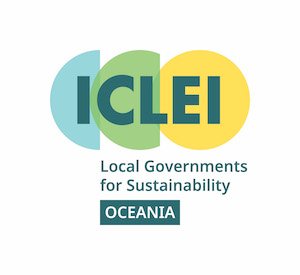Case study: Climate and disaster threats in Honiara
Charles Kelly, City Clerk Honiara, Steve Gawler, RD ICLEI and Nelson Anaia, Provincial Disaster Officer, visiting the Ontong Java fishing village - one of the most vulnerable settlements along the coast.
Honiara, capital city of the Solomon Islands, is a magnet for people from the outer islands and rural areas. Boatloads of people are arriving every week to live in Honiara, looking for greater work opportunities, better education and health services for their families. But most of these people are forced to settle in the outer fringes of Honiara, many on the steep hills or along the coast and rivers. They have no formal tenure and often no electricity, water, sanitation or decent road access.
These squatters are highly vulnerable to extreme weather, landslides, tidal flooding and other climate related disasters. The City Council is struggling to provide basic services to these areas, particularly as the number of houses in some of the informal settlements is increasing by up to 15% per year!
The Honiara Council elections were held in May and the new ward councilors are very keen to provide stronger support and services to their informal settlements. The Friendship Grant is enabling ICLEI, Local Governments for Sustainability, to work with the new councilors, to brief them on the climate and disaster threats facing their communities and help them build strong working relationships with their Ward Committees and local groups. Depending on the priorities raised by the community, this initiative may lead to developing climate resilient public spaces such as using flood plains for sports grounds, rehabilitating community buildings for use as safe evacuation centres, setting up emergency water and food supplies. Community groups, churches and particularly women will be central to this activity.
ICLEI made its first visit to Honiara to commence this project in June, meeting with the new councilors and visiting several of the most vulnerable settlements to understand first-hand the threats they are facing, but also the energy and resilience of the community.

